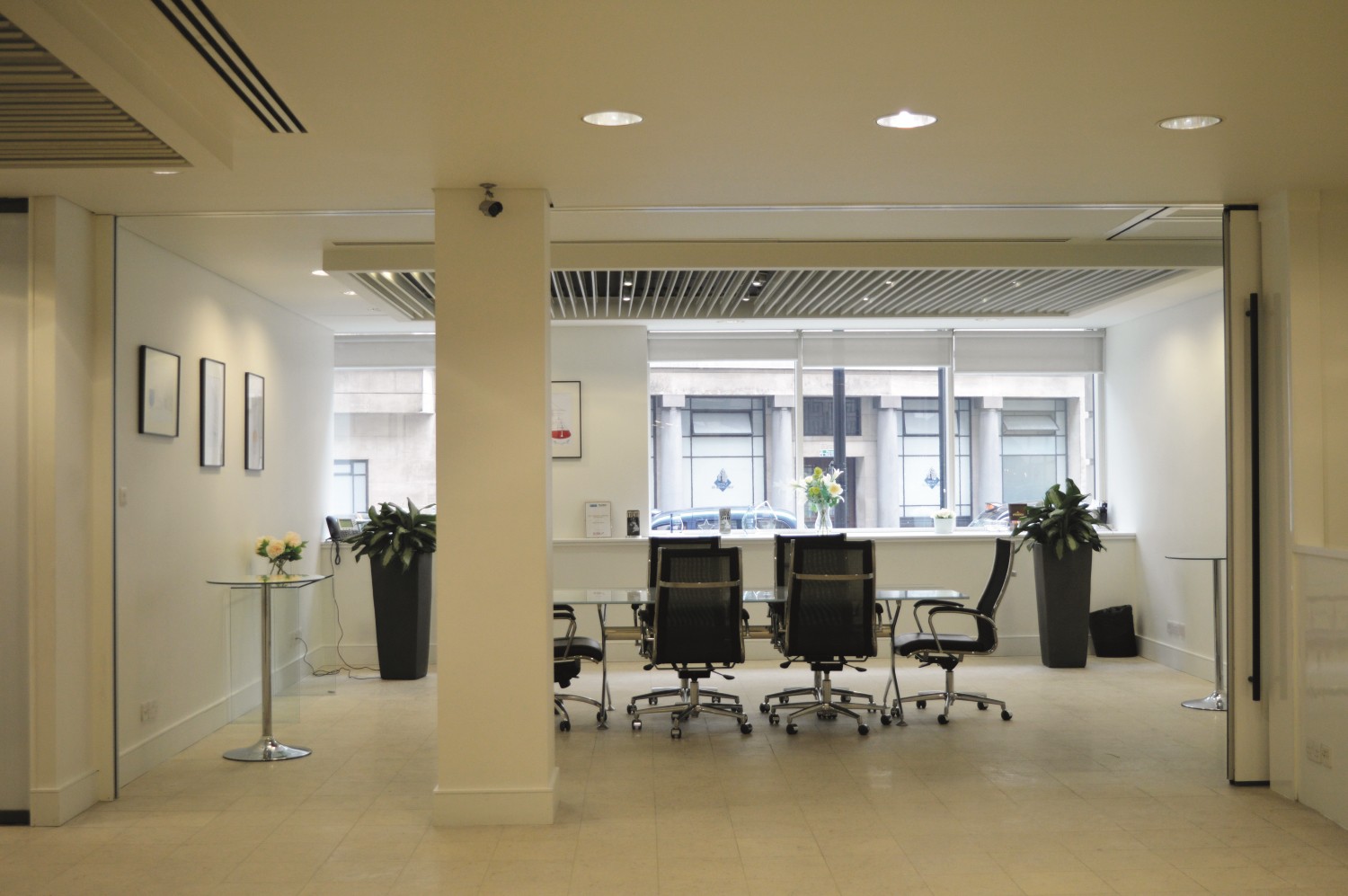
The firm provided thoughtful recruitment and selection activities, which were different to those I had expected.
A firm with a long history, but a modern edge, Bircham Dyson Bell (BDB) is the worthy winner of this year’s Best Recruiter – Medium-Sized Firm award. With its main office at the heart of Westminster (and another in Cambridge), the firm’s government and infrastructure team carries out some of the most interesting work in this practice area – something that drew trainee Rahil Haq to the firm: “The location of the firm was a big thing for me; , although the firm is involved with projects throughout the country, it’s based in the heart of the capital, near Parliament and various government departments involved in the kind of projects the firm advises on.”
With a month’s paralegalling at the firm under his belt, Rahil’s decision to apply for a training contract there was a no-brainer, although he still had to undergo the same two-stage interview as the other candidates. “I took part in several role plays,” he recalls, reflecting on some of the key features of the process. “One involved having to offer advice to the interviewing partner who was pretending to be a client. None of the exercises required you to have any legal knowledge; instead they were designed to assess how well you think on your feet.”
We want the best candidates to choose us and feel comfortable with that decision, especially as it’s a long-term commitment on both sides
Nicola Jacobs, BDB’s HR manager, explains that the interview process is designed to test a range of skills. “We are assessing candidates in a number of different areas,” she points out. “It’s not just an ordinary interview. But we only ask them to do things that we would expect a trainee to be able to do; there’s nothing too abstract! The exercises are designed to showcase what the candidate would do in a particular scenario; we still want them to be themselves. We try to make it as real as possible. Not everyone is good at a straight interview, so the practical aspects of the process are important.”
On top of this Mark Challis, a partner in the government and infrastructure team and the firm’s graduate recruitment partner, maintains that the process is also determinedly balanced in its approach: “The idea is to give everyone the chance to shine, but in different situations. If they don’t do particularly well in one part, they have the chance to redeem themselves later on.” The recruitment process reflects our high standards, but is about doing our best to find the right people, not trying to catch people out. We place a lot of emphasis on giving everyone a fair opportunity to impress.”
Feeding into the idea of fair play is the space the firm’s vacation scheme occupies in the overall process – important, but by no means the only way to get a training contract. “There’s no separate assessment process for the vacation scheme, other than shortlisting the applications, so whether they’re then invited to a training contract interview depends largely on supervisor feedback from the two-week scheme,” explains Nicola. “We don’t offer training contracts to a specific percentage of vac scheme students, but those who have done the scheme are at an advantage of knowing more about the firm and having experiences that they can then talk about at interview.”

Mark agrees: “The vacation scheme is helpful in that it gives a participant the chance to learn about the firm from the inside and to have a good understanding of what it’s like to work here, but it doesn’t mean that person will be chosen over someone who hasn’t done the vac scheme.”
Not content to rest on their laurels, the graduate recruitment team and the interviewing panel – made up of around 12 partners and senior associates – reviews what has worked well and makes improvements every year. “At the end of the annual cycle, we all sit down and discuss our thoughts on how things have gone,” says Nicola. “We also informally ask candidates what they thought of it.
Partly as a response to that, we’ve amended the assessment format to ensure that candidates have a better idea of what we as firm do and where they might see themselves within BDB, rather than it just being us assessing whether the firm should take them on – it is very much a two-way process. That includes hosting a lunch with trainees and the managing or senior partner that is completely separate from, and forms no part of, the assessment process. It also helps candidates see that we take this seriously. We want the best candidates to choose us and feel comfortable with that decision, especially as it’s a long-term commitment on both sides.”
Having been involved with the firm’s graduate selection process for some time, Mark adds his thoughts on why BDB has changed the process quite substantially over the years. “We’ve made it more competency based, but also introduced a much more structured, two-stage process. One core element is that now we ask everyone the same questions; before it tended to be more free form in parts, but that meant it was much harder to judge people as every candidate had been asked different things. Although it’s more rigid now, it is fairer and better, including for the interviewing team, who have set questions to put instead of having to think what to ask next.”
The variety of work that we offer as a firm is wide, with some very distinctive seats
Part of the effectiveness of the process is ensuring buy-in from the entire firm. “The engagement and commitment from the recruitment panel is very nice to see. People like taking part, as it’s a change from their legal work and we all recognise the importance of selecting the right people in the firm’s long-term interest,” Mark explains. “We are conscious that strong candidates may well have more than one offer, so we need to explain why it would be best for them to train here as opposed to elsewhere. We always try to give open and honest answers, and welcome them asking whatever is on their minds about what a career at the firm would be like.” Nicola adds: “When I ask people to get involved, they seem to genuinely like being a part of the process. Someone recently came back from maternity leave and she was very keen to help. I feel very well supported – Mark and Sarah Clark, our training principal, a partner in the firm with overall responsibility for our trainee programme, are both great.”
The firm-wide commitment begins with assessing the application forms – a lengthy process for both applicants and reviewers, as Mark notes: “Going through the forms is a time-consuming job and I’m always impressed by how willing people in the firm are to do the job properly. We are very conscious that it takes a long time to complete these applications, so it is right that we take the time to read them carefully.”
Rahil’s experience of the entire recruitment process ended happily and having accepted his training contract offer, he spent a further year paralegalling at the firm and then a few months off before he was due to start. In fact, his reintroduction was via the summer party, “which was a great way to get back into life at the firm!”. Being invited to social events is just one way that Nicola stays in touch with her future joiners. “One of our soon-to-be trainees was part of the rowing team that took part in a regatta the other week! We’re keen for them to socialise ahead of joining so that they feel comfortable and part of things when they start. I also send out a quarterly newsletter, and the level of contact ramps up closer to the time when they’re due to start.”
Having officially joined, the first week of induction and Professional Skills Course is designed to bond the small cohort of five trainees and ease the transition between study and life as a working lawyer. “When trainees join us, it can be challenging time for them,” Mark explains. “We offer help and guidance. There is an understanding that it can be daunting; people here appreciate that.”
“The first week in the office, you are with all the new trainees for your induction and training,” Rahil recalls. “It’s a good opportunity to get to know your fellow trainees. At the end of that week, you meet your first seat supervisor, go through the handover with the departing trainee, and are introduced to the people in your new department. The firm is open plan so it is easy to speak to anyone; you sit within your departmental group, so asking questions is easy. You’re also given a buddy, who has recently qualified.”
Having fully settled in and now in his second seat, Rahil notes some of the best parts of a traineeship at BDB: “I feel that I have been given a lot of responsibility and have been entrusted with interesting work. I certainly have the chance now to do a lot more on my own, as I’ve become more experienced. Talking to friends at other firms – both smaller and bigger – I think that I receive excellent levels of responsibility, but also have a really good work/life balance.”
Nicola has her own view on why this is a great firm at which to launch a legal career. “We are an approachable firm,” she maintains. “Those who get involved with our recruitment are really passionate about the trainees, many have trained here themselves, so they are very engaged with the training process and understand how important it is – as well as remembering what it was like! The variety of work that we offer as a firm is wide, with some very distinctive seats. Also, because there are only five trainees, you get fully involved with the work – you are not on the periphery at all. Our trainees have a real understanding of where they sit within the process and the firm.”
“We recruit with the future in mind, so we’re looking for people who can make a good long-term contribution to the firm,” Mark explains. “That doesn’t necessarily mean becoming partner, but we do recruit on the basis that we want to retain all our trainees and for them to progress here, making a fulfilling contribution to the firm.”
With a final thumbs-up for their award-winning recruitment process, Nicola points out that the feedback from candidates affirms that the firm is projecting the right message. “They often say that they have enjoyed the process in a weird sort of way! They mention the friendly and welcoming people, and that they don’t feel that they’re trying to be caught out. And we do try to make it as relaxed as possible, of course bearing in mind that it is still a formal process. I definitely think it’s one of the things that sets us apart!”

Best Recruiter – Medium City Firm
The firm provided thoughtful recruitment and selection activities, which were different to those I had expected.

